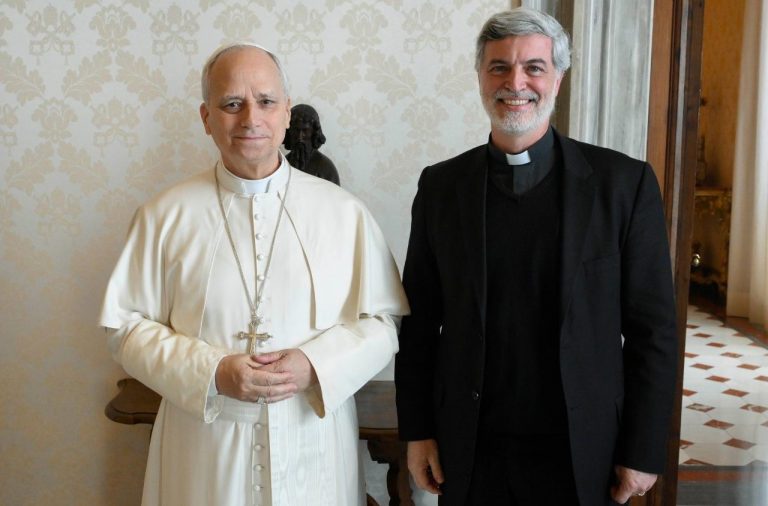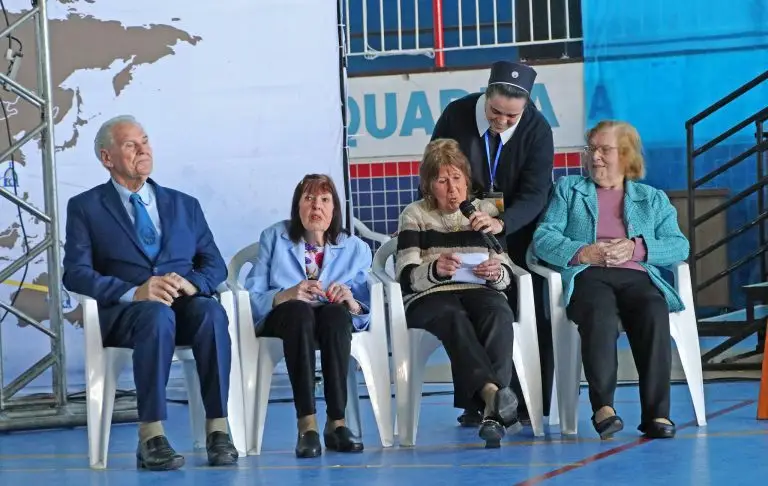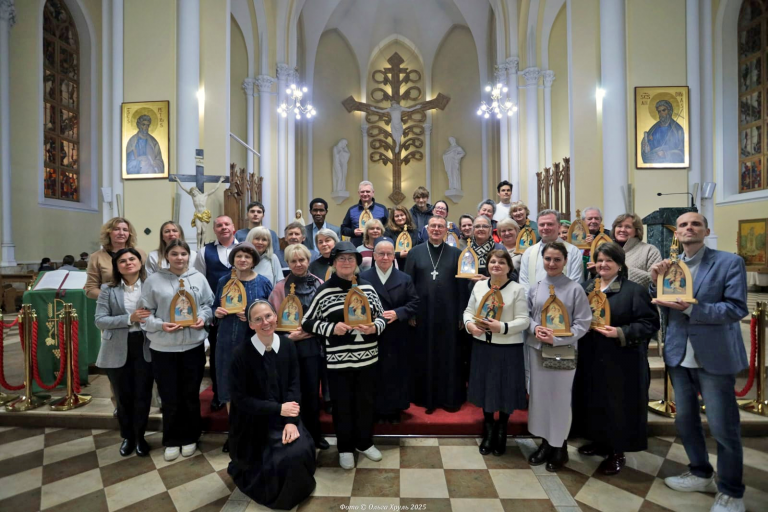Research, depth, and new insights marked the first day of the International Congress “In the Footsteps of the Pilgrim: On the Life and Work of Deacon João Luiz Pozzobon.” This academic gathering brings together researchers, theologians, students, and members of the Schoenstatt Movement in Santa Maria (Brazil) at the Franciscan University.
The inauguration, attended by some 260 participants from 14 countries (Mexico, India, Brazil, Argentina, Colombia, Chile, Ecuador, Spain, Paraguay, Puerto Rico, Portugal, Italy, the United States, and Germany), took place on September 9.
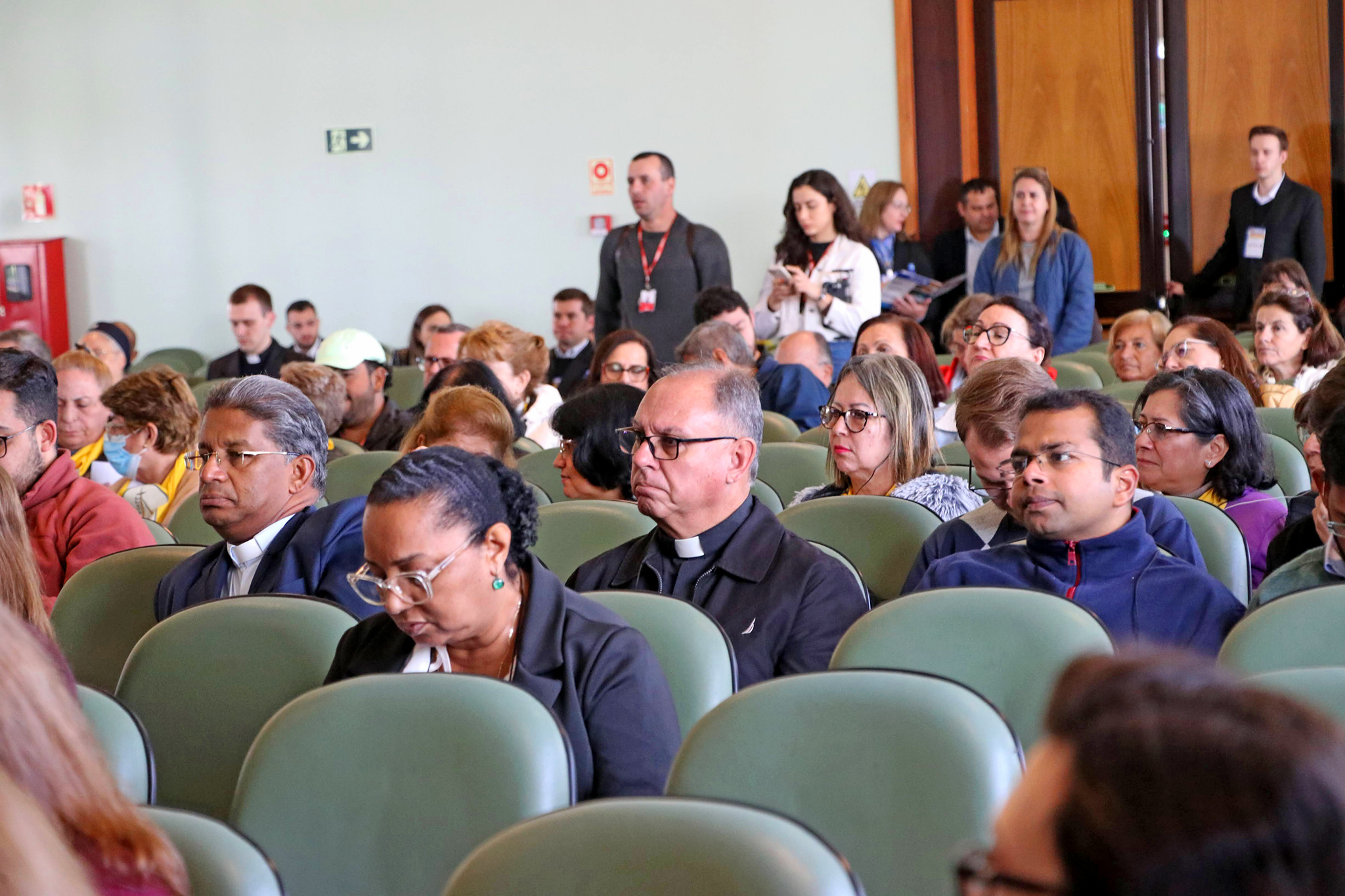
Opening remarks
In his opening speech, the president of the International Schoenstatt Presidium, Fr. Alexandre Awi Mello, was moved as he recalled his early years as a deacon and priest, lived in Santa Maria: “Today we have all come with a single desire: to follow in the footsteps of Venerable Deacon João Luiz Pozzobon, to give thanks for his fruitful life and to deepen our understanding of his work, which continues to inspire and transform the Church and society.”
The vice-rector of the Franciscan University, Solange Fagan, recalled in her welcome message the experiences she had with João Pozzobon. As a school principal several years ago, she welcomed him, along with the children, to pray the rosary.

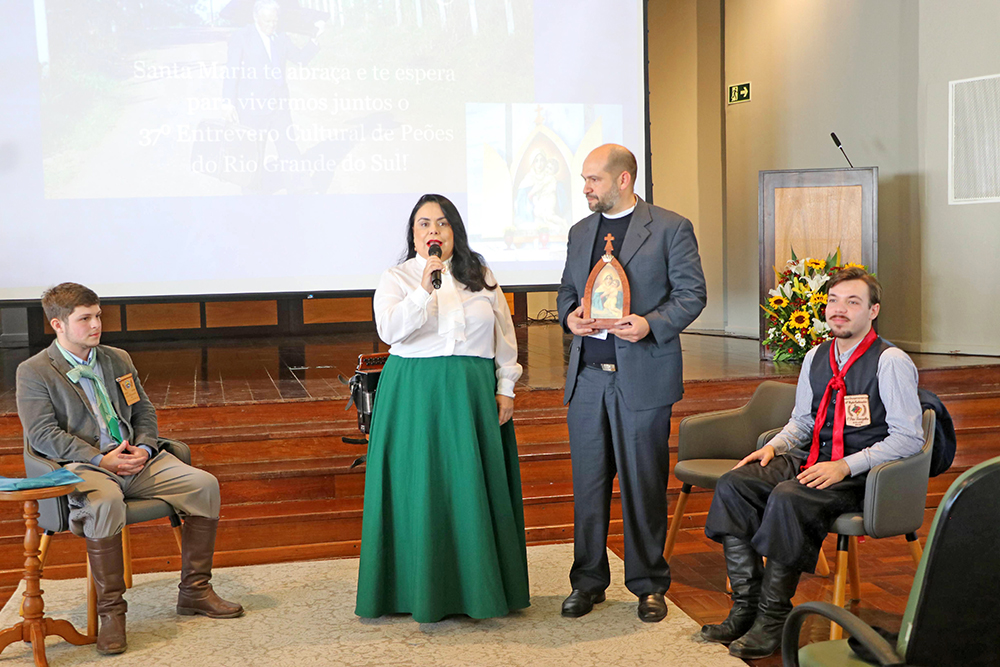
The relator of Pozzobon’s cause, Monsignor Melchor Sánchez, who was the first person to have contact with the process in the Dicastery for the Causes of Saints, also came from Rome to attend this congress. Monsignor Sánchez says he is excited to be able to visit the places where Pozzobon lived.
The Archbishop of Santa Maria, Leomar Brustolin, was the last to greet those present and recalled the beginnings of Pozzobon’s Process. He mentioned that he is impressed by how people around the world know Pozzobon: “The most famous person from Santa Maria in the world.”
The event was also attended by the mayor of Santa Maria, Rodrigo Decimo; the deputy mayor of Restinga Seca (RS), Tarcizo Bolzan; the rector of the Federal University of Santa Maria, Martha Adaime; and the assistant to the General Council of the Sisters of Mary, Sr. M. Ana Teresa Rückauer.
Pozzobon and the documents of the Church
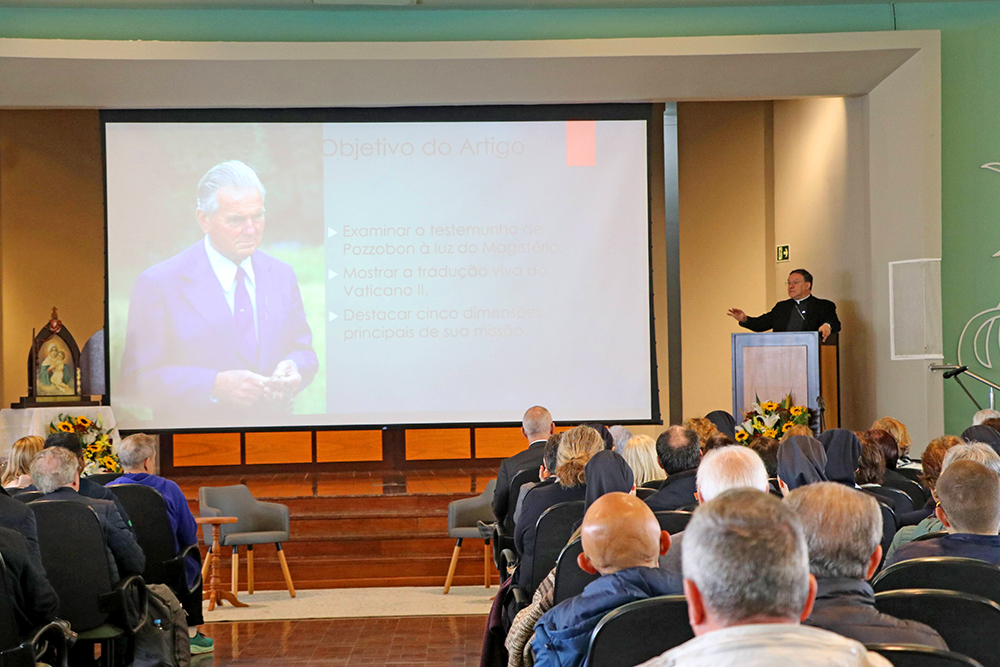
Leomar Brustolin presided over the inaugural conference, which dealt with the theme “Ecclesiological Context: Deacon João Luiz Pozzobon, Vatican Council II, and the Church Going Forth.”
According to archbishop Brustolin, João Pozzobon, through his work, anticipated the content of the documents of Medellín and Aparecida, primarily through his commitment to the poor and his focus on the family. He also anticipated the innovations of the Second Vatican Council in several aspects.
Archbishop Brustolin highlighted the importance of popular piety and emphasized that João put it into practice. “It is no longer possible to do ‘counter pastoral care’; pastoral care is going out to meet others, going where people are and bringing them to Jesus Christ,” said the archbishop.
Regarding his vocation to the diaconate, archbishop Brustolin affirmed that Pozzobon’s ordination did not replace his lay mission, but rather confirmed it sacramentally. He concluded by saying that a tree is known by its fruits: “The life of João Luiz Pozzobon is a living interpretation of this passage. His simple existence is rooted in Christ, and his mission transcended borders.”
Understanding the past
Between work intervals, there were musical performances and regional cultural presentations.
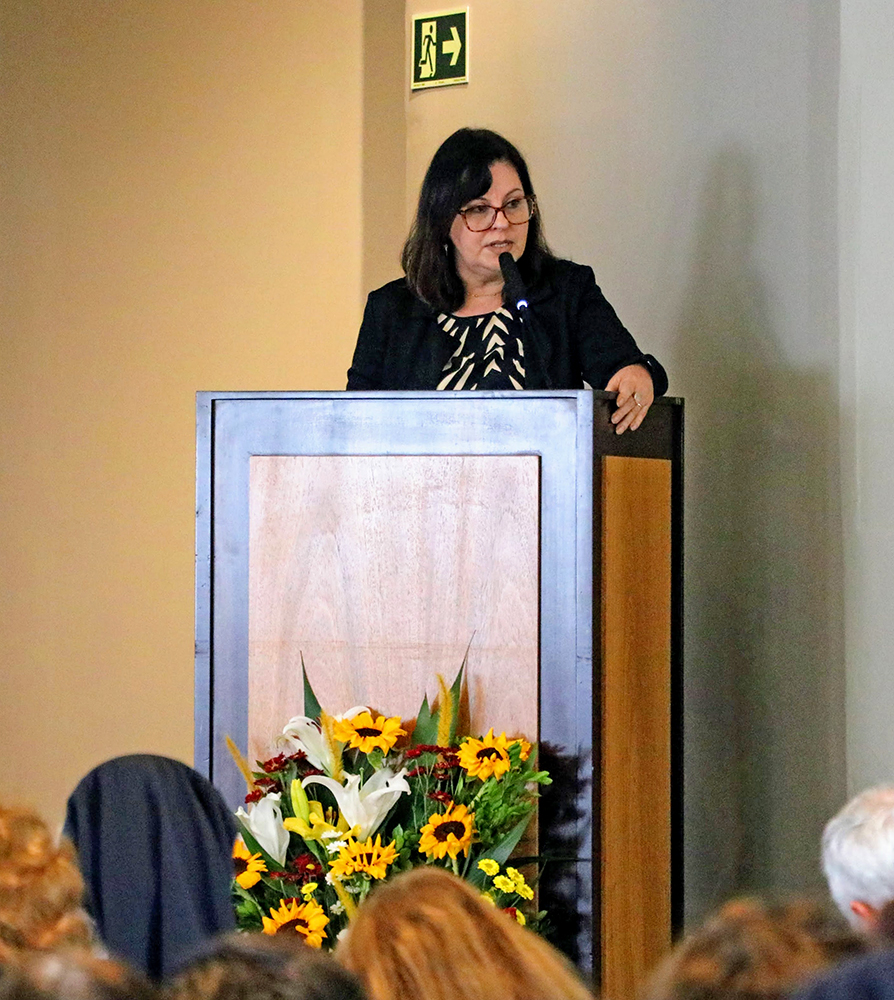
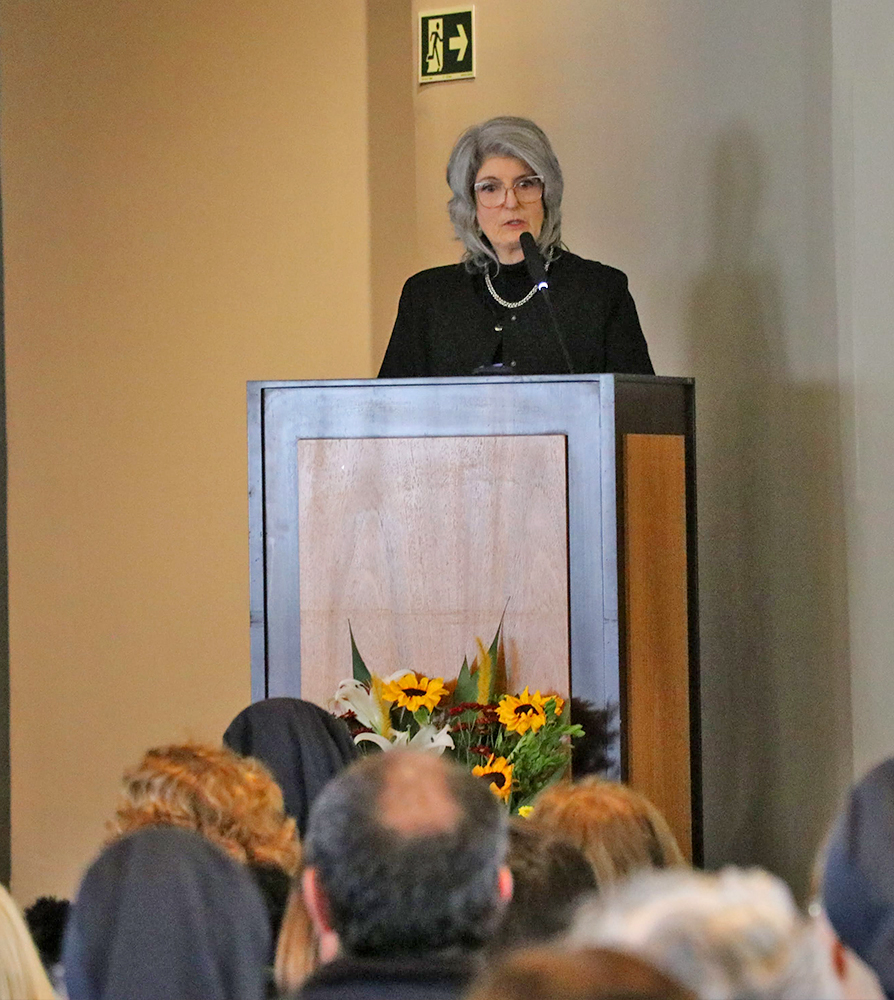
Next, a workshop delved into the local history and the historical, social, and cultural context of João’s life.
Professor Dr. Maria Medianeira Padoin highlighted the religiosity of Italian immigration and its impact on João’s trajectory, starting with his ancestors.
Professor Padoin also explained that the entire photographic, documentary, and historical record of the Pozzobon Cause was compiled by academics from the University of Santa Maria.
Professor Dr. Marta Rosa Borin then presented the historical and religious context of the city of Santa Maria. She highlighted the religious tensions throughout the municipality’s history, particularly those between Protestants and Freemasons, as well as the Catholic faith. These were some of the tensions that João referred to as “strong headwinds.”
Spirituality and evangelization
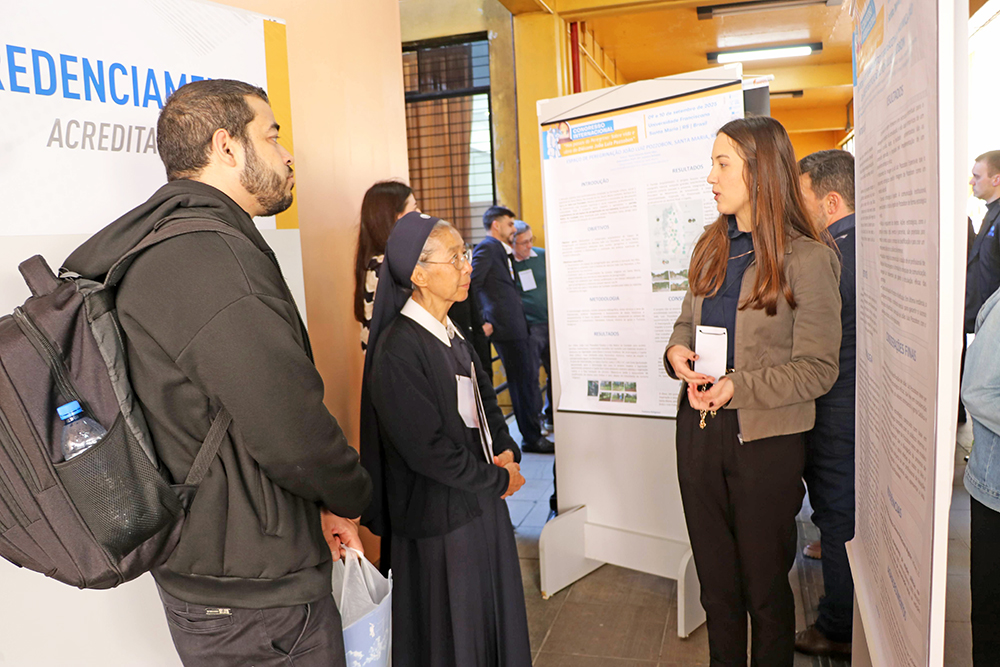
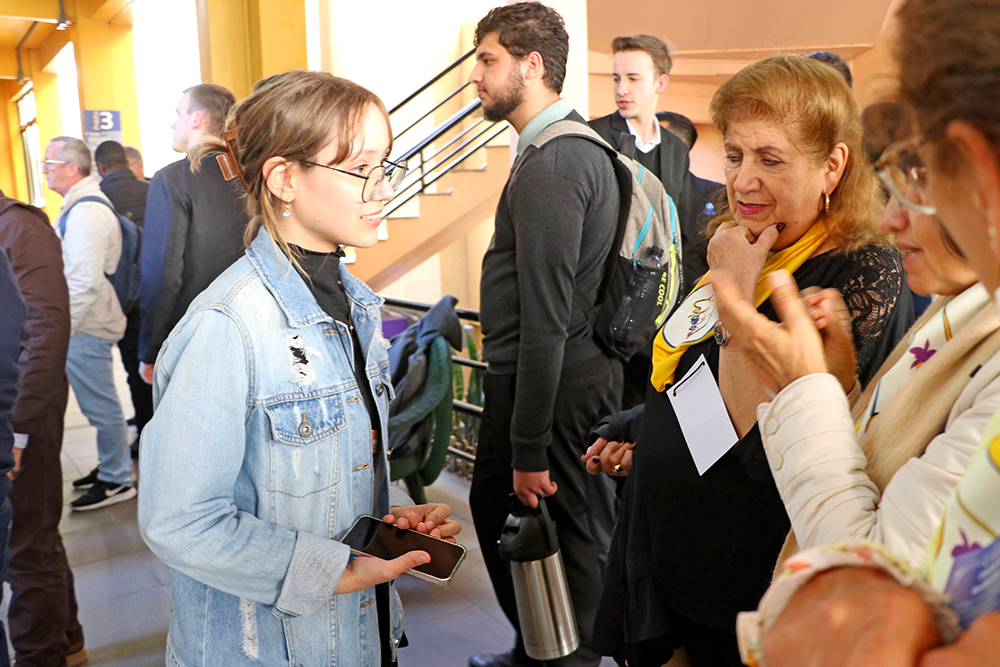
In the afternoon, researchers presented their academic work in various fields of study, such as communication, geography, architecture, and history, among others.
This was followed by a workshop on “the spirituality and evangelizing action of the Poor Pilgrim.” Sister Maria da Graça Sales Henriques delved into Pozzobon’s spirituality and affirmed that “the key is prayer, continuous dialogue with Mary.” Regarding the Trinitarian dimension of this spirituality, she affirmed that “the encounter with Mary in the shrine is also an encounter with Christ.”
Next, Fr. Alexandre Awi Mello explored Pozzobon’s evangelizing action as a current of life and drew parallels with the current model of the Church. He highlighted ten aspects of Pozzobon’s work that are close to the vision of the Church dreamed of by Pope Francis and taken up by Pope Leo XIV, including an outgoing Church, Marian, popularly pious and merciful, as well as a synodal Church.
“The evangelizing action of João Luiz Pozzobon reveals a layman who, in his simplicity and deep faith, anticipated and embodied many of the guidelines and aspirations of the contemporary Church. The Apostolate of the Pilgrim Virgin is a current of life that is nourished by the current magisterium and, in turn, feeds back and fills our missionary Church with life,” summarized Father Awi Mello.
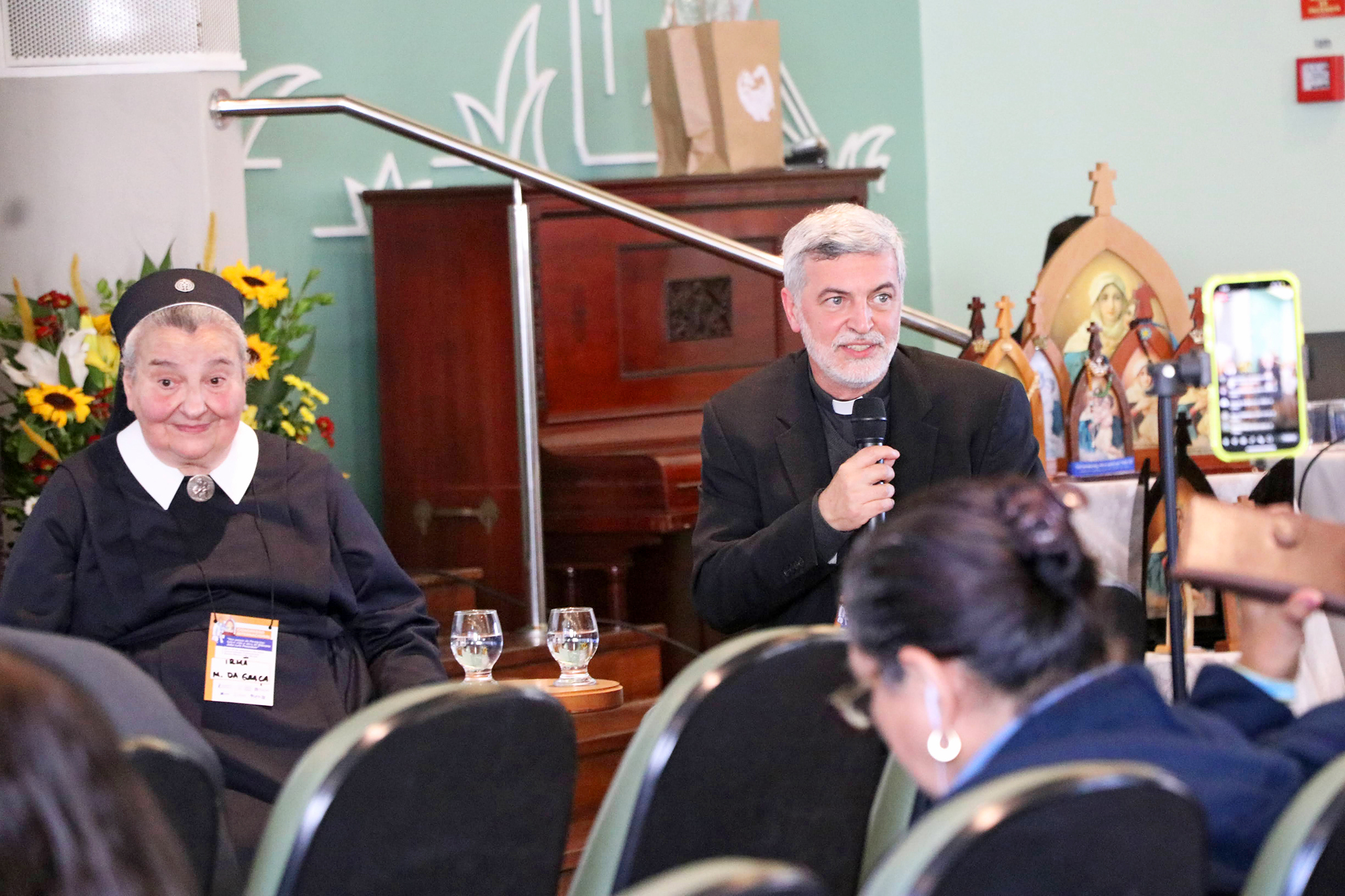
A challenge for everyone
Holy Mass was celebrated in the Cathedral of Santa Maria, thus putting the finishing touch to the day. It was presided over by Archbishop Emeritus Hélio A. Rubert and concelebrated by 19 priests and four deacons. In his homily, Monsignor Hélio spoke about João Pozzobon: “I knew and always admired the simplicity of this man of God.” “I knew and always admired the simplicity of this man of God.”
The archbishop, who was responsible for opening the beatification process, appealed to all those present: “We must remain united, pray hard, and also make João known. Do we accept this challenge?”
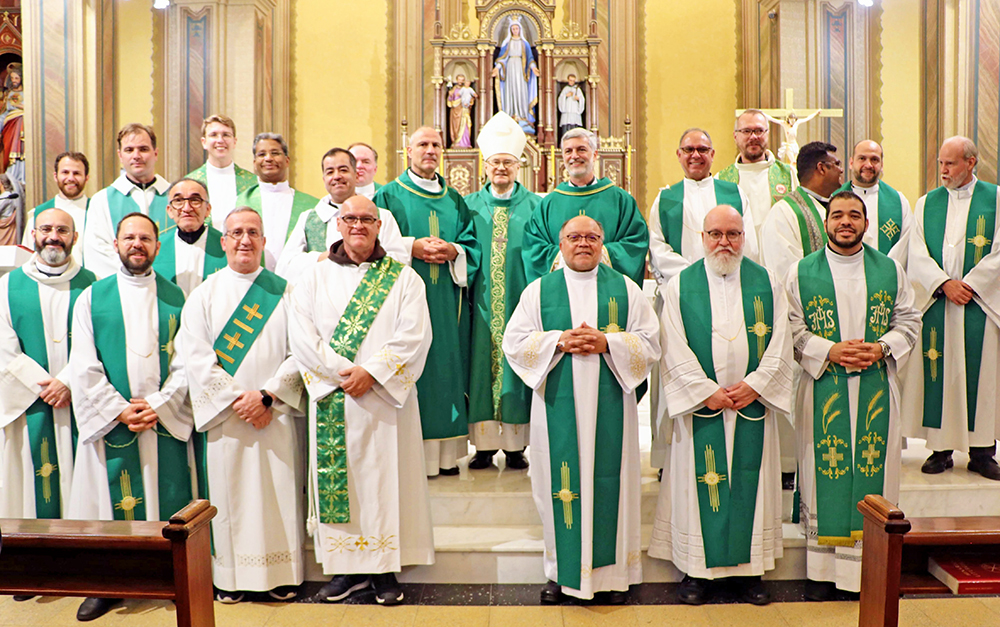
The first day of the congress ended with new insights and expectations for the continuation of in-depth studies.
Seminarian Jerosh Winson from India summarizes his view of the day’s activities: “The conference provided valuable insights into Venerable João Luiz Pozzobon’s life, cultural context, and historical background. Presentations by Drs. Maria Medianeira Padoin and Marta Rosa Borin were particularly enlightening, highlighting the phrase ‘a holy task will take place on fragile shoulders.’ Dom Leomar Antônio Brustolin’s presentation, ‘Leave your house, take Mary, transform the world,’ underscored the mission that Venerable João Luiz Pozzobon embodied. His life serves as a testament to the transformative power of faith and dedication, making him a model of sainthood for today. The conference was a powerful reminder of his enduring legacy, and I am grateful for the experience. May his example inspire us to live out our faith with courage and conviction.”
Translation: Sr. M. Lourdes Macías

